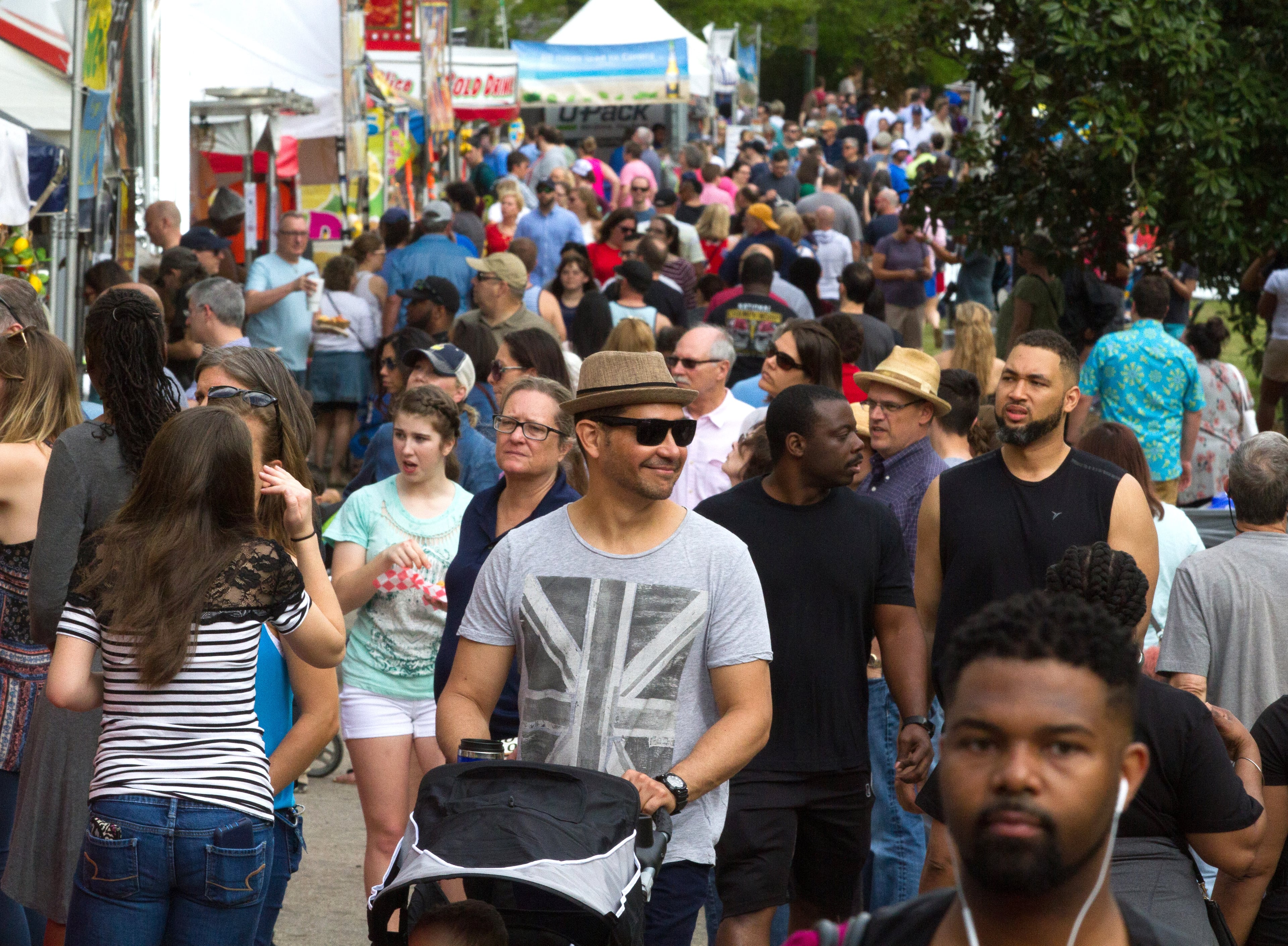The Dogwood Festival will happen in 2026, but it won’t be free anymore

The annual Dogwood Festival at Piedmont Park will be back in 2026 but will no longer be free for attendees.
The festival has been losing money since 2020 and in August, management sent out a public plea seeking $250,000 in donations by Saturday to keep it alive.
So far, the festival, which brings in 260 artists from around the country every spring, has raised only about $72,000, well short of its goal.
But executive director Brian Hill said he and the Dogwood Festival board decided to move forward with the annual three-day event next April. It helped that the nonprofit organization was able to get permission from the city of Atlanta to change its permit from a free event to a paid one.

“It’s been real touch and go,” Hill told The Atlanta Journal-Constitution. “It’s still going to be a challenge budget-wise. I think the security of being able to charge an entrance fee will put the festival on more solid footing.”
How much they plan to charge has not been finalized, but Hill said he expects it to be around $10 per person with various discount opportunities.
The festival has touted itself for years as one of the biggest art-themed events in Atlanta, though accurate attendance figures are difficult to compile for a free three-day event.
Hill said some people may choose not to come once they know it’s not free, but he believes it won’t severely affect attendance.
He also said fencing the park space around the festival is not feasible, meaning some unpaid people may be able to sneak in. “It will be more of an honor system if you will,” he said, using wristbands.

The festival launched in 1936 during the depths of the Great Depression as a way to highlight the beauty of the city during the blooming of the dogwoods. It featured concerts, a parade, pageants and a carnival in its early years before going dormant in the 1940s. Fans of the event revived it in the late 1960s, and it has largely used Piedmont Park as its home base the past three-plus decades.
“I’m really happy to see they came up with a solution to come back next year,” said Craig Roderick, a floral photographer from Birmingham, Alabama. He used to bring his art to a show in Houston that same April weekend but decided to try out the Dogwood Festival instead this year.
“It was fantastic,” Roderick said. “It’s very well-organized. We were so busy I didn’t have time to even walk the entire event.”
About 800 artists apply each year to be part of the Dogwood Festival, and a panel of experts pare that down to 260.
“It’s very well regarded in the art community,” Roderick said.
He has done his share of both paid and free festivals and said it doesn’t make a difference in terms of sales.
“People who don’t want to pay $5 or $10 entry fee aren’t likely to buy art,” he noted.

Joe Hobbs, a blown glass artist from Pensacola, Florida, calls it his favorite show of the year. “So many art festivals are on streets,” he said. “The special thing about Dogwood is how they weave it through the park. The surroundings are beautiful.”
He is saddened that Dogwood has to go to a ticketed event, because “I like the idea of art being available to everybody. I enjoy talking to high school students as much as I do a prospective collector.” But he admits that it likely won’t affect him financially.
David Shutley, chairman of the Dogwood Festival, said the fundraising effort did bring in a couple of major donors: individual philanthropist Deen Day Sanders and The Rich’s Foundation. (Walter Rich, the founder of Rich’s Department Stores, helped support the Dogwood Festival in its early days.)
But so far, it hasn’t been able to procure any major funding from new corporate donors. “That has come in below expectations,” he said.
The festival was profitable through the 2010s relying largely on corporate sponsors, Shutley said. But those donors reduced their support after COVID-19, and expenses jumped significantly. As a result, they began running annual deficits and exhausted their $500,000 in reserves.
Hill, who had planned to retire in November after running the festival for 17 years, said he will stay on at least through next spring now to ensure the ticketed version of Dogwood works.
“I’m cautiously optimistic,” Shutley said. “We’re talking to potential new corporate sponsors now, but we have nothing to announce yet.”
According to its 990 financial form it files annually to the federal government, for the fiscal year ending June 30, 2024, the festival generated $903,466 with expenses of $977,109, resulting in a deficit of $73,643.



